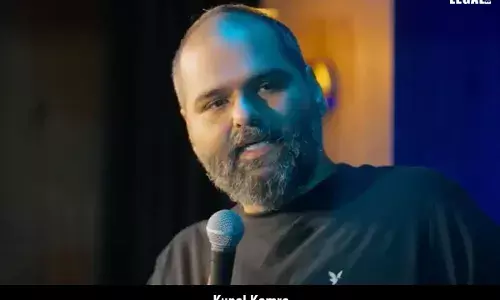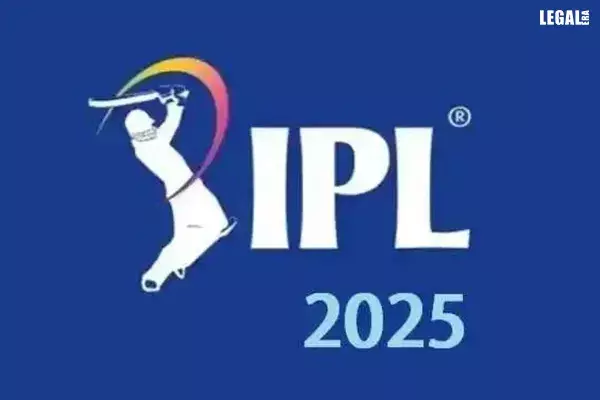How is Freedom of Speech dependent on the Restriction of Speech?
Freedom of speech and expression granted by Article 19(1) of the Constitution of India is not absolute, and is subject to the certain restrictions.;

How is Freedom of Speech dependent on the Restriction of Speech? Freedom of speech and expression granted by Article 19(1) of the Constitution of India is not absolute, and is subject to the certain restrictions. Freedom of speech is one of the fundamental rights of Indian citizen and is in popular discussion at present. The freedom of speech is not absolute, rather subject to...
How is Freedom of Speech dependent on the Restriction of Speech?
Freedom of speech and expression granted by Article 19(1) of the Constitution of India is not absolute, and is subject to the certain restrictions.
Freedom of speech is one of the fundamental rights of Indian citizen and is in popular discussion at present. The freedom of speech is not absolute, rather subject to certain restrictions. Words are too powerful, it can bring peace, as well as they can destroy peace and harmony.
Charlie Chaplin in his autobiography wrote, "In the creation of comedy, it is paradoxical that tragedy stimulates the spirit of ridicule; because ridicule, I suppose, is an attitude of defiance".
Therefore, to understand the extent of the freedom of speech, it is necessary to understand it's the legal provision, which is explained in this article.
Freedom of speech
The provision of Article 19(1)(a) of the Constitution of India grants freedom of speech and expression to all the citizens of India, following the philosophy of securing all the citizen's human right to have a good life.
The main elements of freedom of speech and expression are as follows:
• The right is granted only to Indian citizens, not to any foreign individual.
• The right is not absolute. The Government of India, if required, can put certain restrictions to ensure peace and harmony. Any views or opinion shared through any medium of the word of mouth, writing, posting, printing, picture, drawing, digital creation etc. if is abusive towards an individual or community, then it can be prevented.
• The right to freedom of speech and expression granted by the Government cannot impose any hindrance to the Government from any law to frame or implement any law to restrict any action for the interest of the sovereignty and integrity of India, the security of the state, maintaining a healthy relationship with the other nations, maintaining public order, morality, decency and any other reason for the interest of the welfare of the nation in coordination to public policy.
• The restriction on the freedom of speech of any citizen may get imposed by an act of the state or inaction. The failure of the State to ensure the citizens' freedom of speech and expression is a violation of Article 19(1)(a).
What are the restrictions imposed on freedom of speech?
Under Indian law, there are penal several sections that criminalize the violations of restriction of the freedom of speech and expression. They are listed as follows:
• Section 153A of the Indian Penal Code says that any activity or speech that is promoting enmity between different groups on grounds of religion, race, place of birth, residence, language, etc., and doing acts prejudicial to maintenance of harmony by words, either spoken or written or by signs or by visible representations or any other way is a penal offence.
• Under the Indian Penal Code, Sec. 292 criminalizes obscenity.
• Section 295A of the Indian Penal Code specifies that any deliberate and malicious acts intended to outrage religious feelings of any class of citizens are a criminal offence.
• Section 298 of the Code criminalizes uttering any word or making any sound to cause a sentimental hurt to the religious feelings of any person.
What is the present scenario in India regarding the restriction of speech?
Any speech which violates national integrity can make you face imprisonment.
Any hate speech is not protected by Article 19(1)(a) whereas, genuine criticism comes under its provision.
As in present time, we can see that several students, activists, comedians and journalists are being charged under the criminal and anti-terrorism laws, which is criticised as the Government's forceful method adopted to curb the freedom of speech under the Constitution of India.
At present time, though the standup comedians are questioning, imitating, and ridiculing the state violence, political philosophy, politicians etc. have whirled the environment to bring the question forward that what is the right limit of restriction to be imposed on the provision under Article 19(1)(a).
Humour is no doubt an intelligent expression of dissent to anything. However, some of the comedians and cartoonists named Kunal Kamra, Munawar Faruqui and Rachita Taneja were brought under the charges of criminal proceedings for spreading hate speech which is one of the major exceptions of the Freedom of Speech and Expression.
The tiff of the government against free speech is often polluted with the communal element.
In the matter of Arnab Goswami who was condemned publicly by Union Ministers, the Supreme Court refused to grant any extension of protection to journalists who disagree with the establishment.
The Judiciary also imposes circumstantial conditions restricting speech as a condition of bail. For example, the Kerala High Court granted bail to Rehana Fathima in November 2020 in the matter concerning an alleged video upload of cooking cow-meat but restricted her from using social media altogether.
It is widely criticised that this kind of censorship scoming from the Judiciary itself sends dangerous signals because the Judiciary is the guardian of the fundamental rights in India. It may have an adverse effect of indirectly waiving off the freedom of speech granted by the Constitution of India.





